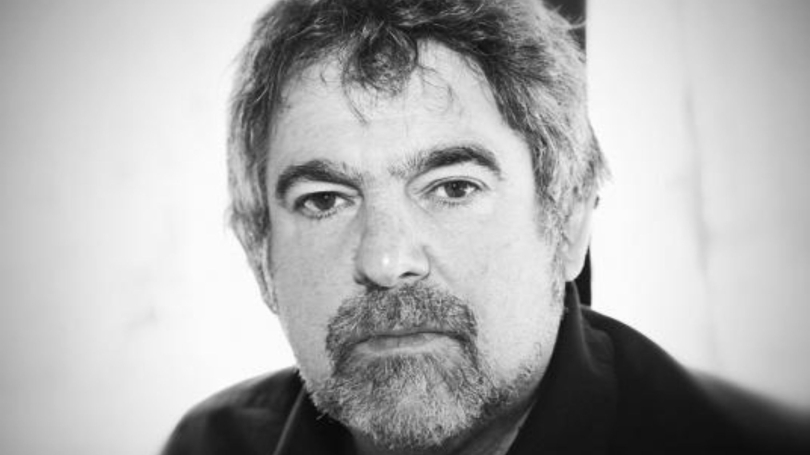
- About
- Departments & Programs
- Faculty Resources
- Governance
- Diversity
- News
Back to Top Nav
Back to Top Nav
Back to Top Nav
Back to Top Nav
The multifaceted professor emeritus of music died on May 9.
Larry Polansky, Jacob H. Strauss 1922 Professor Emeritus of Music, died on May 9. He was 69 years old.
"A multifaceted composer, guitarist, mandolinist, theorist, performer, editor, writer, and teacher who illuminated the intersections between music, mathematics, and computer science, Larry left an indelible mark on the field of music," Dean Elizabeth F. Smith said in a message to the Arts and Sciences community.
Born on October 16, 1954, in New York City, Polansky attended U.C. Santa Cruz where he double-majored in music and mathematics before completing his graduate work in composition at the University of Illinois, Urbana-Champaign. After serving on the music faculty of Mills College in Oakland, California, for nine years, he arrived at Dartmouth in 1990. Polansky was promoted to associate professor in 1996, and he was appointed Jacob H. Strauss 1922 Professor of Music in 2000. In 2012, he was promoted to full professor. He retired from Dartmouth in 2013.
Drawing on his fascination with math and computer science, Polansky coauthored the computer music language HMSL (Hierarchical Music Specification Language) with Phil Burk and David Rosenboom. He also worked with Tom Erbe to add spectral mutation functions to SoundHack, a widely used Macintosh program that performs a variety of sound file manipulations. His scholarly contributions were extensive, with articles in publications including the Journal of Music Theory, Computer Music Journal, Musical Quarterly, Perspectives of New Music, and the Leonardo Music Journal, of which he was founding editor.
Polansky's music has been widely recognized and performed globally, with 10 solo CDs, including freeHorn (2017), Three Pieces for Two Pianos (2016), The World's Longest Melody (2010), The Theory of Impossible Melody (2008, 1990), and Trios (2004). An accomplished performer, he premiered and recorded works by such notable composers as Christian Wolff, Barbara Monk Feldman, Michael Parsons, James Tenney, Lou Harrison, Ron Nagorcka, Daniel Goode, and David Mahler, among many others.
Polansky's accolades include Guggenheim, Fulbright, and Mellon New Directions fellowships, and he was the inaugural recipient of the Henry Cowell Award from the American Music Center. His innovative work extended to American Sign Language poetry and performance, highlighted by his score for Stacey Steers' Night Hunter and his production of a major ASL poetry festival at U.C. Santa Cruz.
Polansky was the editor of numerous books and journals, including Divisions of the Tetrachord by John Chalmers (1995) and Meta + Hodos by James Tenney (1995). His writings and editorials spanned various topics and were featured in publications such as MusicWorks, Sound American, Open Space Magazine, and Perspectives of New Music.
Polansky's music department colleagues fondly recall his enthusiasm and curiosity, his engagement with his students, and the range of his musical interests. Melinda O'Neal, professor emerita of music, valued "his deep musicality, endless energy, never-deterred enthusiasm and focus, and his insistence on seeing beyond perceived boundaries."
Professor Ted Levin remembers Polansky as "a charismatic and caring teacher whose spirit of artistic adventurousness and voracious intellectual curiosity inspired a generation of Dartmouth music students." The graduate program that Larry energetically helped build, he says, is part of his legacy, adding: "Larry epitomized a life in music, well lived."
Professor of Music Kui Dong recalls Polansky as "a fantastic guitar player, improviser, composer, teacher, and researcher of computer music and American folk music—a true Renaissance man," adding that she feels "lucky to have played free improvisation with him and Christian Wolff for 10 years."
Polansky is survived by his ex-wife, Jody Diamond, and their daughter, Anna; and his partner for the last decade, Amy Beal.